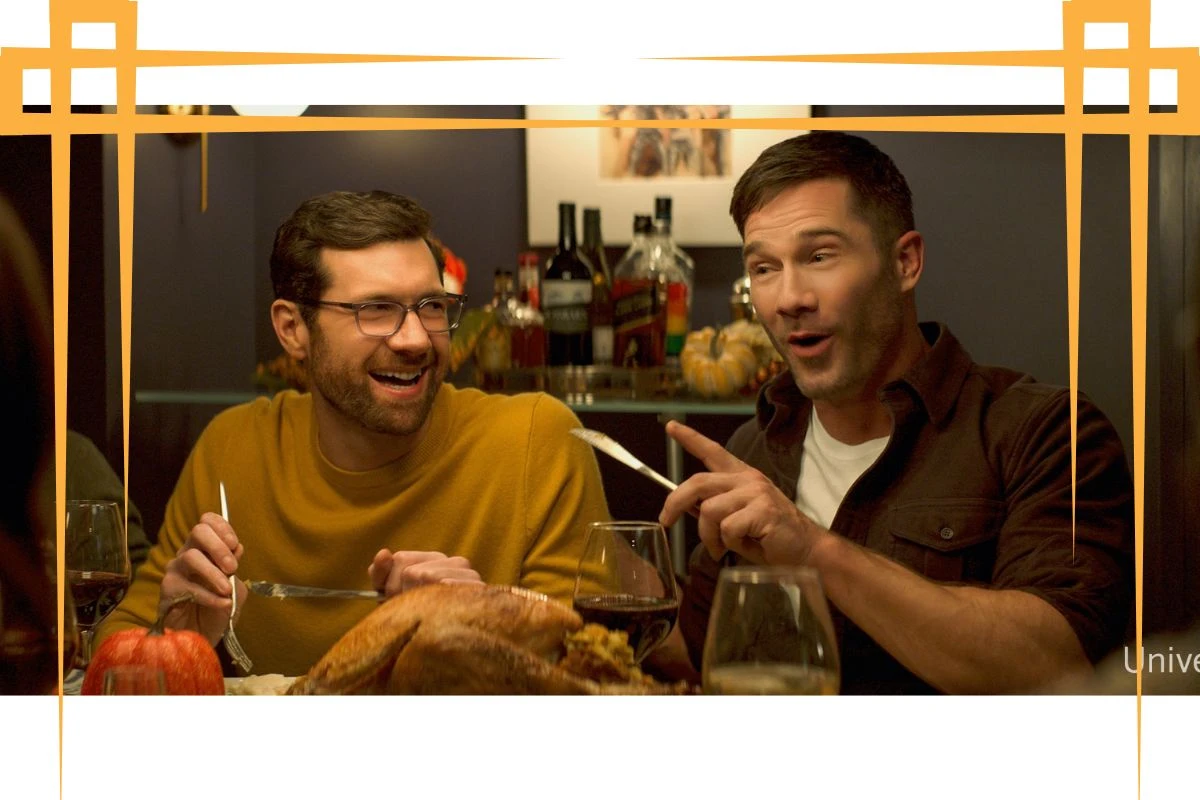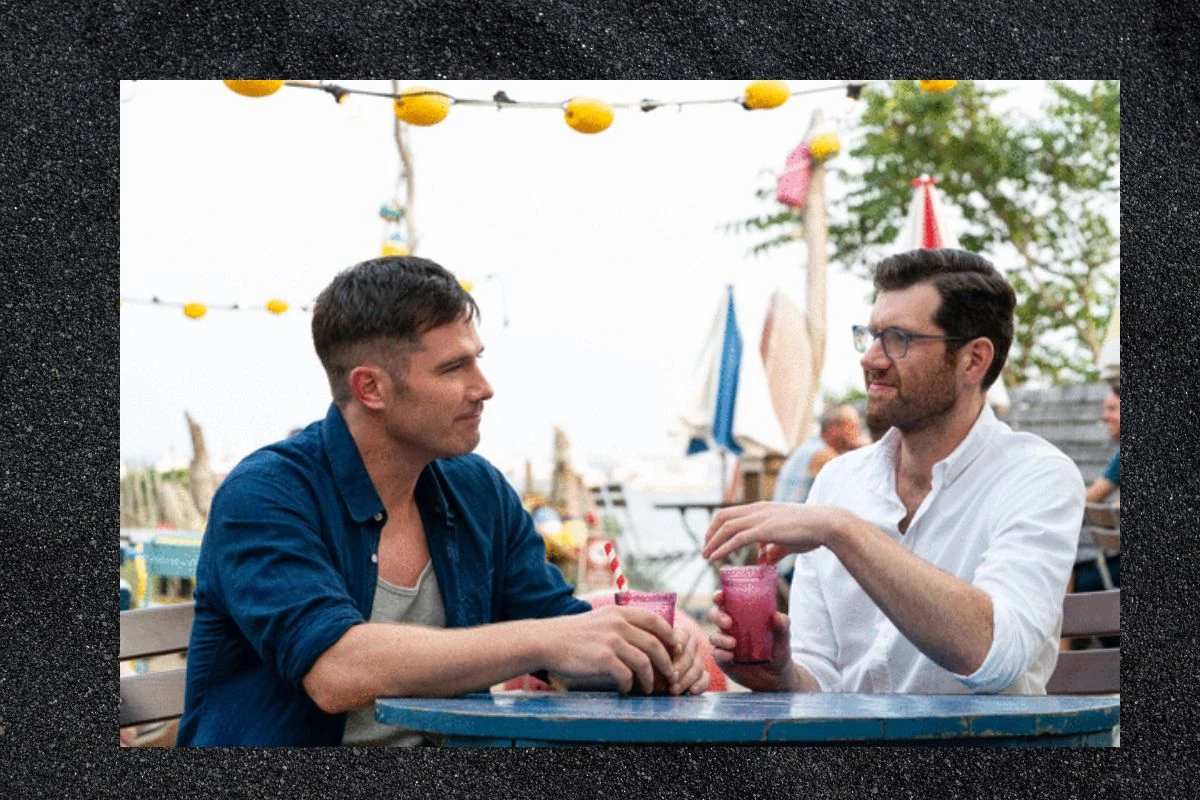[web_stories title="false" excerpt="false" author="false" date="false" archive_link="true" archive_link_label="" circle_size="150" sharp_corners="false" image_alignment="left" number_of_columns="1" number_of_stories="5" order="DESC" orderby="post_title" view="circles" /]
Bros Teaches Us Its Fine to Let Gay Art Fail: The Real Lesson
To be honest, I didn’t want to put pen to paper for this. I refrained from criticizing “the first big studio movie written by and starring a gay guy” because I didn’t want to hurt the film’s critical reception or its chances at the box office.
Neither “Billy on the Street” nor “Difficult People,” two of the most popular cinematic adaptations of the homosexual sensibility in recent memory, are starring him, so I had no intention of attacking him. To be honest, I wouldn’t have done it without Billy Eichner’s insistence. Nobody wants to back a film that threatens them with bodily harm. Everyone may be suffering the effects of the poor opening weekend for Eichner’s romantic comedy “Bros,” not just the straight individuals who didn’t go see it. The dismal $4.8 million take “means many LGBTQ fans didn’t turn up to watch the comedy in theatres,” as Variety pointed out in their analysis of the film’s disastrous box office performance. So, in Eichner’s confusing post-bomb twitter spiral, we’re all “homophobic weirdos” or just silent Benedict Arnolds blocking his path to immortality, right? “Despite excellent reviews, high ratings on review aggregator Rotten Tomatoes and audience rating services like CinemaScore, Bros. And that’s disappointing, but it is what it is,” Eichner wrote on Sunday in response to the results.
After experiencing such a devastating setback, Eichner may be excused for throwing an accidental elbow or two. However, his attitude fits nicely with the film’s marketing because of the prevalence of arrogance and, yes, entitlement. He boasted that “Bros” “is not an indie movie” before the film’s world premiere at TIFF. This isn’t like the other million shows on Netflix or some other streaming service, where you can just forget about it after a few episodes. That, “This is a historic moment, and somehow you’re at the center of it,” was something I had to remind myself of. You have a hand in making it.'” (Fans of the Hulu series “Fire Island” picked up on his dubious comments, leading the show’s creator, Joel Kim Booster, to publicly respond and defuse the outrage.)
Please check out our previous article on Disney Aims to Contain the Fallout From ‘Don’t Say Gay’.
You are the essential point: These were phrases that would linger in the craw, implying that Eichner, however knowledgeable he may be about the canon of the rom-com, had briefly forgotten his LGBT heritage in film. Before there was a label for us, members of the LGBTQ community had already established ourselves in the American imagination through the indies, the “disposable” experiments, the made-for-TV pictures, and the forgotten genre entries. That generational conflict, to which Eichner has often referred during the film’s promotional tour — and, indeed, as the box office wags pointed out, on which Universal Pictures’ marketing strategy relied with such mistaken enthusiasm — is not centered on any one individual or cultural relic. In reality, “Bros” is not quite so radical as it promises, and the handwringing surrounding it is intrinsically linked to the gap between what it is (a perfectly pleasant, middlebrow rom-com) and what it perceives itself to be (a watershed moment for LGBTQ people in popular culture).
It’s admirable that Eichner made a sexually honest studio comedy starring two gay guys and insisted, as his friend and co-star and co-producer Guy Branum point out, on an all-LGBTQ cast. However, the film’s advances are, at best, subtle: Rather than reimagine the genre with a new set of values in mind, it simply switches the “marriage storyline” for the “monogamy plot,” complete with our once free-agent hero getting lectured by his new admirer about starting a family. Even more so, it’s annoying because “Bros” always seems to have the upper hand. Its scathing satire of token representation in Hallmark Christmas movies, of the “haunted house of gay trauma” that pop culture passes off as queer history, and even of Eichner’s public persona, are all a potent, knowing nod to the ongoing challenges of telling LGBTQ stories — of living LGBTQ lives — without simply repurposing a tired, old, straight script.
Until the final frame of the film, that is, when a picture of two stereotypically gorgeous homosexual men kissing is presented as the triumphant coda to the phrase “5,000 years of gay love stories purged from the history books.” This “old-fashioned heteronormative drivel” feels out of place in a movie that otherwise avoids preachiness. It’s impossible to see “Bros” without feeling like you’re complicit in its hubris, failure, and enlightened intentions that lead to benighted results. I belong to Eichner’s generation or a close one; I share his ethnicity, gender, sexual orientation, occupation, and hometown. I am the target audience for “Bros,” the person who is supposed to “see themselves” in the film and take pride in the “milestone” it represents. I am his “type,” in the sense that the phrase implies kinship, and he is mine; I am fairly certain, after viewing the film twice, that I have woofed at his shirtless chest on Scruff in Los Angeles.
Despite our similarities on paper — no, because of them — I flinch at “Bros'” misuse of privilege and bristle at its star’s attempt to cover up the movie’s flaws with homophobia. After all, if the movie is truly committed to the progress it celebrates — that of defining success on our terms, of making our own choices — then it needs to work for the approval it craves, not just assume it will come automatically. The very forms Eichner seemed to dismiss in his eagerness for theatrical triumph have carved out space for LGBTQ people to choose among numerous options instead of clinging to every scrap of queer representation like it was a life raft in storm-tossed seas in the quarter century since “Will & Grace,” whose Debra Messing makes an ingenious cameo in “Bros.” Bros. advocates for more than simply sexual liberation. This includes the liberty to debate and critique the works that purport to speak for the LGBTQ community, as well as the right to keep creating and appreciating queer artistic expression regardless of the attendance of the straight community.
The strongest laughs and applause, at a half-full weeknight screening at the Sunset 5, were all directed at the gayest material, including the slap fight-turned-sex sequence, the Bowen Yang appearance, and Nicole Kidman’s pre-roll ad for AMC. Everyone doesn’t need to watch “Bros,” a movie about not trying to “man up” one’s voice for a heterosexual audience. It can be something that we dispute outside of the circuit party, on our dates, or Twitter before “Drag Race” (or orgies). Likewise, we are free to decide that we would rather spend our time and money on another queer-themed film or TV show that we are genuinely interested in than on this one that we feel obligated to watch.
Let gay art explode does not mean letting gay art languish. However, this does not mean that we should stop demanding inclusive media. It’s not necessary to rule out giving Eichner another go. The point is only to emphasize that this is a reminder that commercial failure is not always an indication of creative achievement, and that this is true not just for homosexual art but for art in general. We got to the point where “Bros” could either drown or swim because of the pull and push of the mainstream and the cutting edge, the praised and the vilified, the celebrated and the suspect. We hope that the next quarter century brings even more extremes, more revolutionary mainstream forays, and more movies and TV shows that are “too queer, too niche” for straight audiences and not gay enough — never gay enough — for us. The world is progressing in that way.
Visit unitedfact.com for the latest news and share this article with your loved ones.



